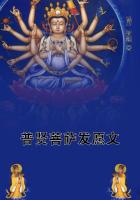All you could love was your shame and the perpetual thought that you were disgraced and insulted. If you were less shameful, or had no cause at all for shame, you would be still more unhappy than you are now.
Aglaya brought out these thronging words with great satisfaction.
They came from her lips hurriedly and impetuously, and had been prepared and thought out long ago, even before she had ever dreamed of the present meeting. She watched with eagerness the effect of her speech as shown in Nastasia's face, which was distorted with agitation.
"You remember," she continued, "he wrote me a letter at that time; he says you know all about that letter and that you even read it. I understand all by means of this letter, and understand it correctly. He has since confirmed it all to me--what I now say to you, word for word. After receiving his letter I waited; Iguessed that you would soon come back here, because you could never do without Petersburg; you are still too young and lovely for the provinces. However, this is not my own idea," she added, blushing dreadfully; and from this moment the colour never left her cheeks to the end of her speech. When I next saw the prince Ibegan to feel terribly pained and hurt on his account. Do not laugh; if you laugh you are unworthy of understanding what Isay."
"Surely you see that I am not laughing," said Nastasia, sadly and sternly.
"However, it's all the same to me; laugh or not, just as you please. When I asked him about you, he told me that he had long since ceased to love you, that the very recollection of you was a torture to him, but that he was sorry for you; and that when he thought of you his heart was pierced. I ought to tell you that Inever in my life met a man anything like him for noble simplicity of mind and for boundless trustfulness. I guessed that anyone who liked could deceive him, and that he would immediately forgive anyone who did deceive him; and it was for this that I grew to love him--"Aglaya paused for a moment, as though suddenly brought up in astonishment that she could have said these words, but at the same time a great pride shone in her eyes, like a defiant assertion that it would not matter to her if "this woman" laughed in her face for the admission just made.
"I have told you all now, and of course you understand what Iwish of you."
"Perhaps I do; but tell me yourself," said Nastasia Philipovna, quietly.
Aglaya flushed up angrily.
"I wished to find out from you," she said, firmly, "by what right you dare to meddle with his feelings for me? By what right you dared send me those letters? By what right do you continually remind both me and him that you love him, after you yourself threw him over and ran away from him in so insulting and shameful a way?""I never told either him or you that I loved him!" replied Nastasia Philipovna, with an effort. "And--and I did run away from him--you are right there," she added, scarcely audibly.
"Never told either him or me?" cried Aglaya. "How about your letters? Who asked you to try to persuade me to marry him? Was not that a declaration from you? Why do you force yourself upon us in this way? I confess I thought at first that you were anxious to arouse an aversion for him in my heart by your meddling, in order that I might give him up; and it was only afterwards that I guessed the truth. You imagined that you were doing an heroic action! How could you spare any love for him, when you love your own vanity to such an extent? Why could you not simply go away from here, instead of writing me those absurd letters? Why do you not NOW marry that generous man who loves you, and has done you the honour of offering you his hand? It is plain enough why; if you marry Rogojin you lose your grievance;you will have nothing more to complain of. You will be receiving too much honour. Evgenie Pavlovitch was saying the other day that you had read too many poems and are too well educated for--your position; and that you live in idleness. Add to this your vanity, and, there you have reason enough--""And do you not live in idleness?"
Things had come to this unexpected point too quickly. Unexpected because Nastasia Philipovna, on her way to Pavlofsk, had thought and considered a good deal, and had expected something different, though perhaps not altogether good, from this interview; but Aglaya had been carried away by her own outburst, just as a rolling stone gathers impetus as it careers downhill, and could not restrain herself in the satisfaction of revenge.
It was strange, Nastasia Philipovna felt, to see Aglaya like this. She gazed at her, and could hardly believe her eyes and ears for a moment or two.
Whether she were a woman who had read too many poems, as Evgenie Pavlovitch supposed, or whether she were mad, as the prince had assured Aglaya, at all events, this was a woman who, in spite of her occasionally cynical and audacious manner, was far more refined and trustful and sensitive than appeared. There was a certain amount of romantic dreaminess and caprice in her, but with the fantastic was mingled much that was strong and deep.
The prince realized this, and great suffering expressed itself in his face.
Aglaya observed it, and trembled with anger.
"How dare you speak so to me?" she said, with a haughtiness which was quite indescribable, replying to Nastasia's last remark.
"You must have misunderstood what I said," said Nastasia, in some surprise.
"If you wished to preserve your good name, why did you not give up your--your 'guardian,' Totski, without all that theatrical posturing?" said Aglaya, suddenly a propos of nothing.
"What do you know of my position, that you dare to judge me?"cried Nastasia, quivering with rage, and growing terribly white.












